Global giant Siemens is on a mission to improve technical training in India by adapting the German Dual VET model to create future-ready professionals. Their unique approach to upgrade the ITIs can build capacity for the manufacturing industry that is rapidly moving towards digitalization and Industry 4.0. In this Skill Talk, Sunil Mathur, CEO and MD, Siemens India, shares his perspective on skilling for new jobs, business and social impact of training and how Skill India mission can be realized through collective participation.
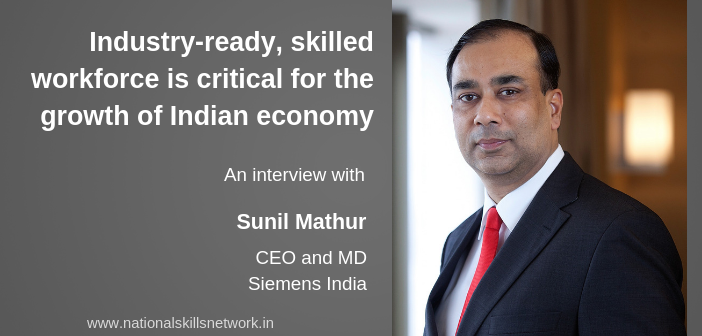 Q: Tell us about your initiative to improve the Industrial Training Institutes (ITIs) and make them future-ready by following the German Dual VET model.
Q: Tell us about your initiative to improve the Industrial Training Institutes (ITIs) and make them future-ready by following the German Dual VET model.
A: Siemens Technical Academy (STA) showcases our strength in designing and delivering world-class technical training by adapting German Dual VET model for India. We want to do the same with ITIs. We have tied up with the ITIs in Delhi and Maharashtra and we replicate what we do at STA. ITIs have got the infrastructure, funding and they have great outreach, but what they lack is the right pedagogy, the machinery, the equipment, trained teachers to deliver and most important is the Industry connect for trainees to get On-The-Job training.
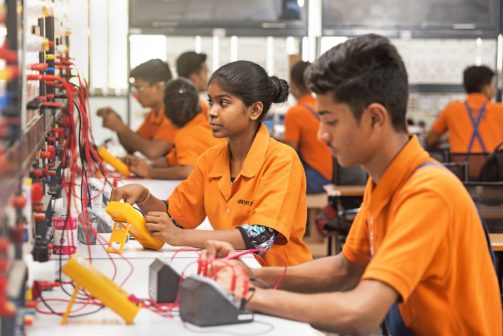
Our approach to improving the ITIs is intended to make them the catalysts of change. You have to think long-term and have a philosophy for scaling and sustaining. We conduct Gap Assessments of the selected ITIs based on Craftsmen Training Scheme (CTS) syllabus and request the ITIs to fulfill the gaps. Once they upgrade them, we support in delivery of the content using the German Dual VET pedagogy through train the trainers. The Instructors apply our quality control techniques to ensure that the delivery meets our standards.
Besides training, our focus is on placements; if the trainees don’t get placed, then the training has no meaning at all! At STA, we have a placement cell that looks into this and our placement record stands at 98%. The unique features of our Dual VET courses lifts the level of competence of students and they stand out among others. Our students have outperformed others in various Skills Competitions and won many prizes. This shows there is tremendous potential and we need to multiply that with many more ITIs. However, the challenge is in getting financial commitment from these institutions.
Q: How do we address issues with the big picture of employability?
A: In many ITIs, one of the reasons that the students are not employable could be that the training they get is not adequate. The students need to be equipped with knowledge and skills that the industry wants. And, particularly in technology areas that are advancing rapidly, if we continue to teach what was relevant yesterday, it is no longer relevant today, forget about tomorrow. In the ITI Program we ensure that the trainees get 2 to 3 months of Industry training while they are undergoing the CTS course. At STA, we are trying to train them in the technologies of tomorrow. So, by equipping them with future skills, you immediately enhance their employability quotient.
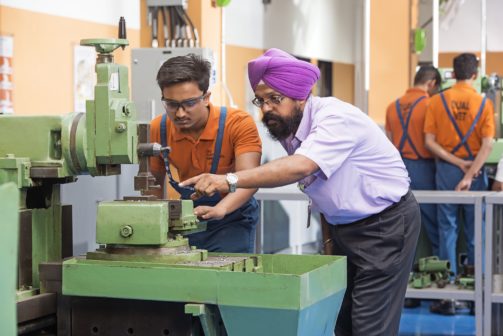
When it comes to hiring, the company has to be convinced that this person is worth and fits the job role. The only way you can do it is to train these people at such a high level that the company immediately sees them as job fit. They may even engage them as apprentices and then absorb them. Our trainees were found head and shoulders above the rest. So, the answer to the big picture is make your institution much more equipped to deliver employable people.
Q: Siemens has an exemplary culture of engaging apprentices. How do we encourage industry, particularly SMEs and MSMEs to adopt apprenticeship schemes?
A: At present, the industry support is lacking for apprenticeships because they don’t know what to support. For example, in textile industry, they may look for apprentices who can operate the latest technology, but they may not find any ITI offering a matching course. Hence, they end up hiring people from outside and train them by themselves. So, it is imperative for ITIs to be industry-relevant. Having said that, every industry may not want to spend capital expenditure on training. We have done it at Siemens by spending a lot on infrastructure and technology but many companies may not be able to do it at this level. Therefore, you have to leverage the potential of ITIs since they have the infrastructure and funding to take them to next level.
Let us look at how it works. Consider for example a textile company approaches an ITI and specifies the subjects and skills needed, and says that they have the competence to train and suggest the ITI to purchase the machinery. And if this is agreeable to them, they can start industy-relevant courses. Industry can participate by sending people from their own factories to design the syllabus and share expertise in other ways. That is the way you can bring it in. Industry cannot be forced to do anything. If there is light at the end and there is a value and a benefit, industry will definitely go for it.
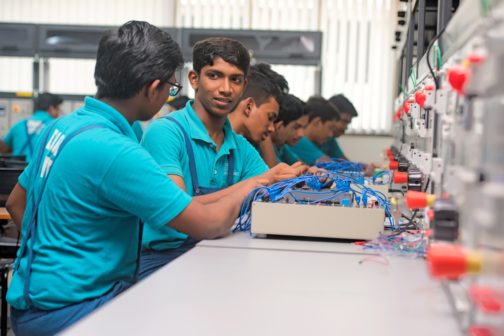
Otherwise, you can’t force the industry to spend. So, you need to create an environment where you are creating a business and social impact at the same time. And the cost benefit of SMEs is they would definitely like to have one trained person rather than three untrained people. But they don’t know where to go to for that trained person. If you create a market availability for them so that they are able to get that one trained person, and convince them about business sense to hire that person, then it may work.
Q: What is the biggest hurdle in engaging apprentices through National Apprenticeship Promotion Scheme (NAPS)?
A: The most critical issue is the apprenticeship cost. For instance if the stipend that has to be paid to an apprentice is about Rs. 6000 or Rs. 8000 per month in the first year, it will be Rs. 10000 in the second year and around Rs. 12000 in the third year. It’s the minimum wage. That means, If they earning Rs. 10 – 12 thousand rupees during training, when they get employed, they would expect 15 – 20 thousand rupees. That is where you need to address the issues with SMEs and MSMEs.
Why would an SME pay Rs 20000 when they can hire a casual worker for Rs. 6000? So, effectively, when a guy finishes his apprenticeship, he is expecting Rs. 20000 – Rs 25000! Is anybody willing to pay the apprentice this amount? So, the apprenticeship stipend is actually stifling the entire apprenticeship program. Therefore, people are not going to go for a company apprenticeship. They would go for ITI courses which is not part of the apprenticeship program.
Q: There is a popular perception that industry has to contribute more to Skill India mission. What is your view on this and what are your suggestions.
A: The attitude of saying industry should do everything is wrong. You have to create an environment that makes sense for an industry to participate wholeheartely and it should make business sense too. There are lots of small and medium enterprises who don’t have enough funding. So, we can’t ask them to first spend the money on training then spend money on employment. This is just not practical!
A skilled and employable workforce is definitely the need of the hour and it is critical for the growth of Indian economy. Unless we are able to skill our people with the technologies of the future, we are going to have a major problem in this country. The question is, are we doing enough? No. Very clearly. As a country we need to do more collectively. It is not about blaming the industry or the government.
You have to bring this entire skilling structure within the ambit of CSR, in totality. In the present format, if I train my own people or people that later I want to employ myself, that is not CSR. If you are skilling outsiders, then it is outsiders. Where is the difference? Am I skilling or am I not skilling that is the difference. Whether I am skilling for someone else is not the issue. Because the social benefit is either way there right? There are some fundamental issues that need to be addressed. We need to be much more forceful in getting the ITIs to start introducing the Dual VET courses.
Q: How can we expect companies to align their business need with creating a social and business impact through skilling?
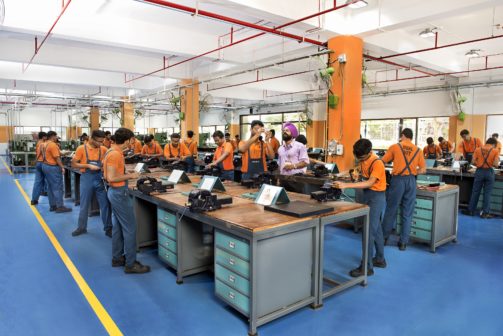
A: The problem is that you can’t force things upon someone. Then, they will not own it because it is not their business need and they may do things just because it becomes mandatory. Our wholehearted efforts in setting up STA is quite exemplary and it is completely aligned with our passion and commitment to skill the youth. Besides huge financial investment, we have a whole team that is dedicated and we even placed one of our senior manufacturing heads, Mr. Rohan Kadlay to lead the initiative. But unless you have that commitment, this is not going to happen.
This is intrinsic to our company’s vision, I know it is the right thing for our business. And I know the more people are skilled, whether they come to me or go outside in the world, it will help our country get to the technological level that we need. And Siemens is trying to get out and sell out in the market as well. So, there is definitely a connect between skilling and business. And this connect has to be created by the government; it cannot be forced. And, once the companies understand the value and the benefits, there will be better ownership.
Subscribe to our YouTube channel for more updates:
Subscribe on YouTube

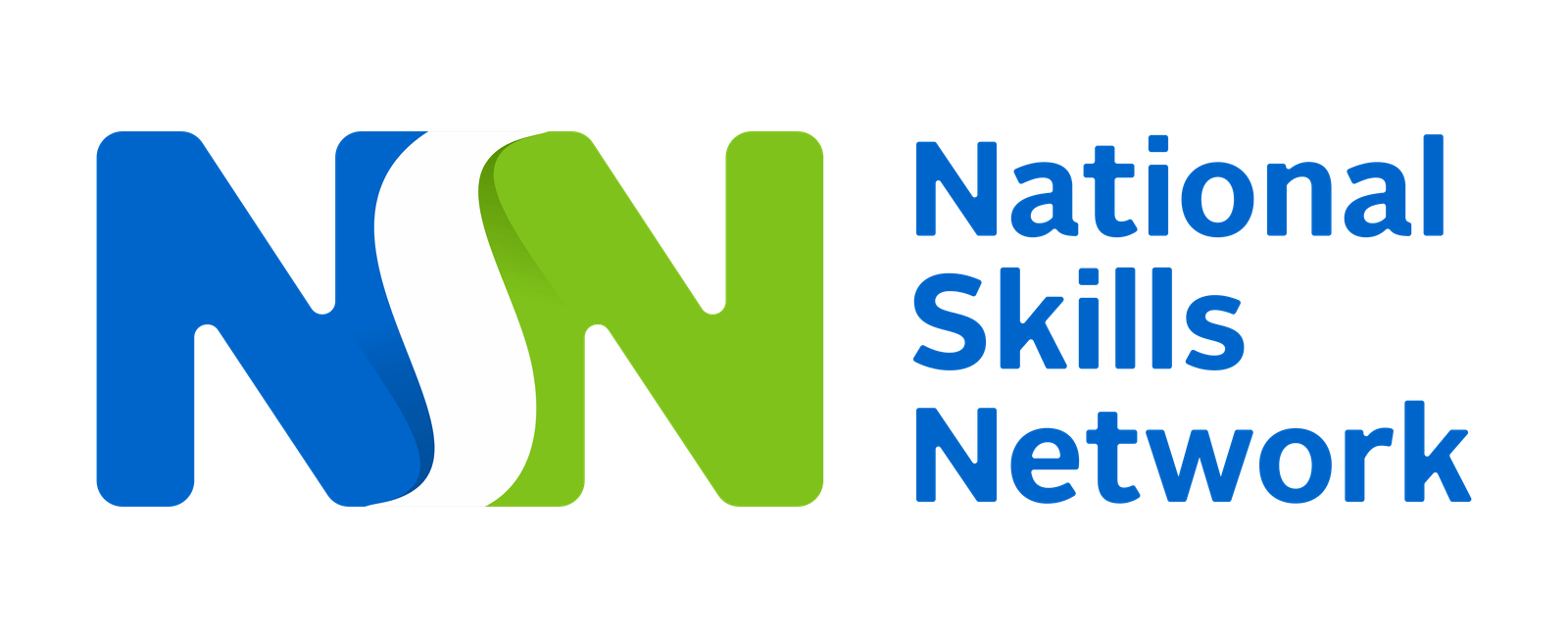
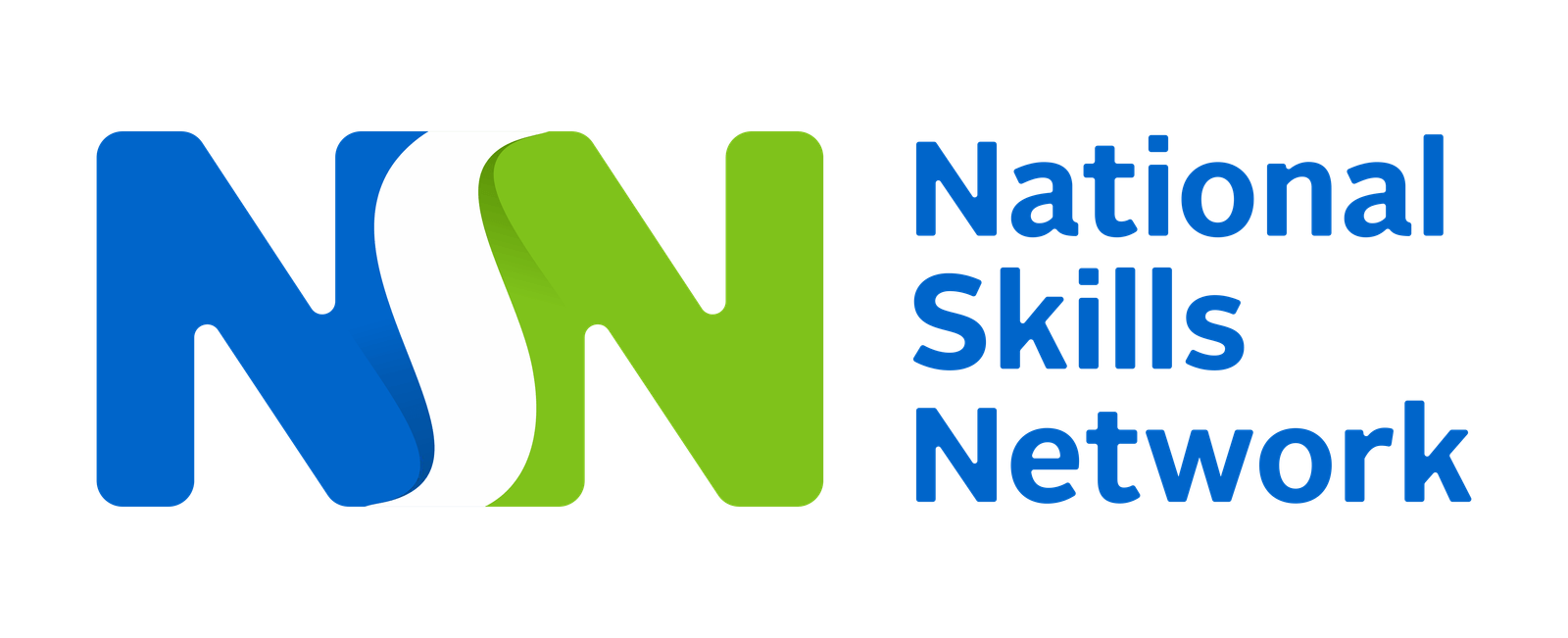











Comments 1